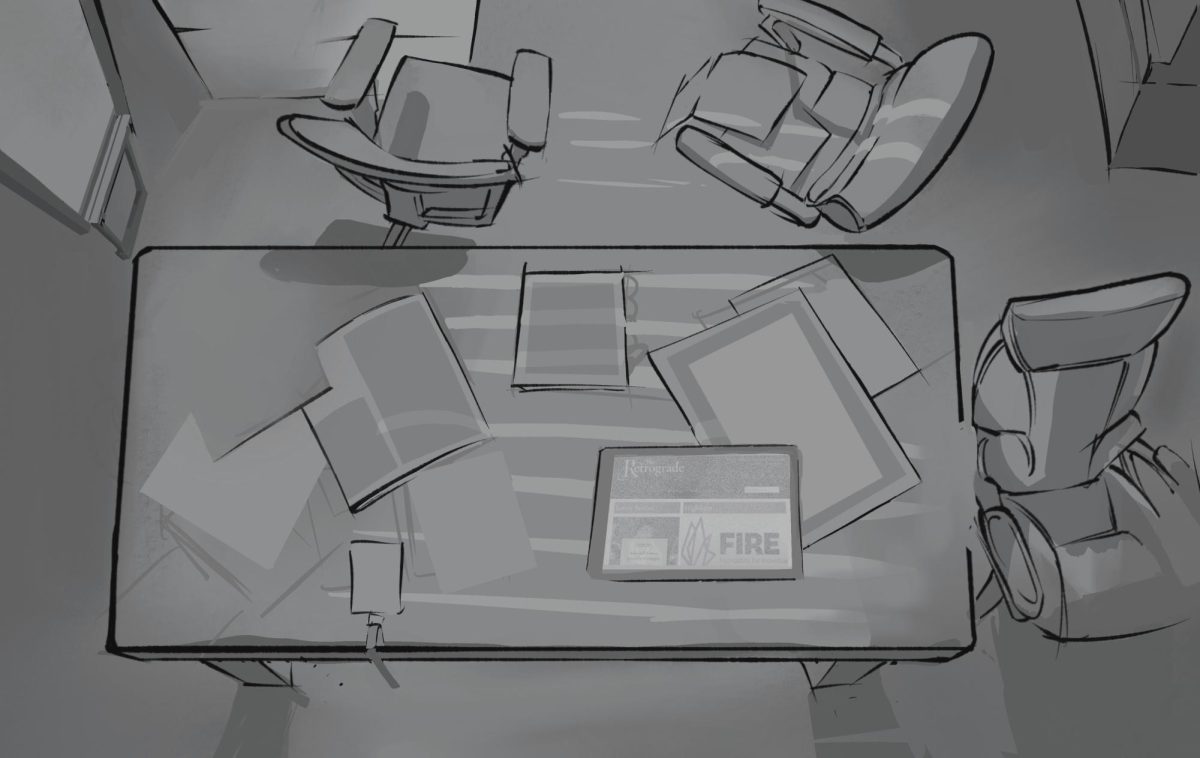As a result of the immediate firing of the editor-in-chief, Gregorio Olivares Gutierrez, of the University of Texas at Dallas’s student newspaper, The Mercury, on Friday, Sept. 13, [eerie that such an event would occur on such a day], the paper has been on strike since Sept. 14.
In addition to Olivares Gutierrez, 10 other staff members were fired from The Mercury, some of whom were even told they would have to pay a portion of their salary back to UTD. UTD later retracted this demand.
The Courier reached out to director of Student Media at UTD, Lydia Lum, multiple times in an attempt to gain her perspective of this disturbing situation, but Lum never responded. It is also of note that Lum has no photograph on the UTD Student Media website, nor her LinkedIn profile. Perhaps she’s attempting to keep a low profile after her earth-scorching actions.
The relationship between The Mercury and UTD administration first became tense after The Mercury’s coverage of pro-Palestine encampments on campus. As someone who briefly attended UC Berkeley, home of the free speech movement, and where protests occurred regularly, any action on the part of a public school’s administration to control its student media in any way is a gross infringement on student rights.
After the pro-Palestine coverage, Jonathan Stewart, then interim director of student media and adviser to The Mercury, was demoted to assistant director of student media and removed from his position as adviser.
Stewart was replaced by Lum, who some former The Mercury staff see as an action by UTD administration to implement its will on The Mercury. Perhaps, Lum’s most significant demand was prior review – the process of reviewing articles before publication – of all stories written by The Mercury staff. Although an adviser’s input can be helpful at times, the requirement of prior review at a public university is unconstitutional at best.
In an email to The Courier, Mike Hiestand, senior legal counsel of the Student Press Law Center, said: “The situation at UTD is extremely disturbing and flies in the face of decades of law protecting the right of college student journalists to publish free from administrative censorship and interference. My hat is off to the student staff for the principled position they have taken in fighting for press freedom.”
On Nov. 12, two nonprofit organizations, the Foundation for Individual Rights and Expression and the SPLC, sent a letter to UTD President Richard Benson, expressing concern of freedom of the press at UTD.
Despite all the pushback by administration, the former staff of The Mercury has not fallen into a pit of despair, but rather has cheekily named a new publication, The Retrograde. The new student media outlet is completely free from any administration oversight. Staff from the student newspaper were even present at the recent National Associate Collegiate Press and College Media Association Convention thanks to contributions, from both individuals associated with organizations committed to student journalism as well as the following organizations: College Media Association and The Society of Professional Journalists.
All things considered, the fact that The Mercury’s journalists did not simply cease producing work, but rather are on their way to certifying The Retrograde as a 501(c)3 nonprofit organization in the state of Texas is a huge win, not just for these individual journalists, but for student journalism everywhere.
Keep your eyes on the lookout this upcoming Friday the 13th, in December, for a potential repeat of Machiavellian moves by a public university to direct, or even silence, their student news media.








